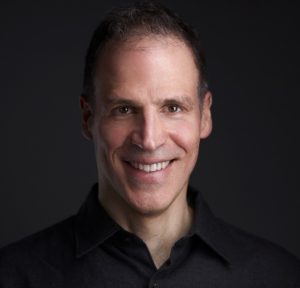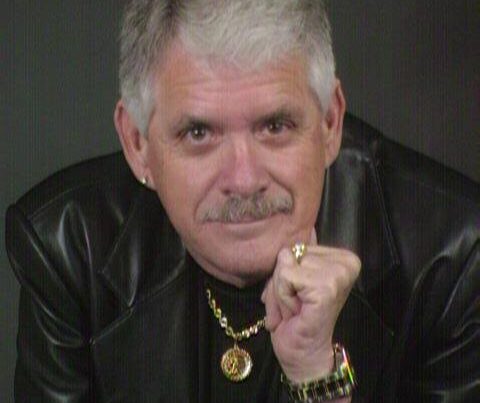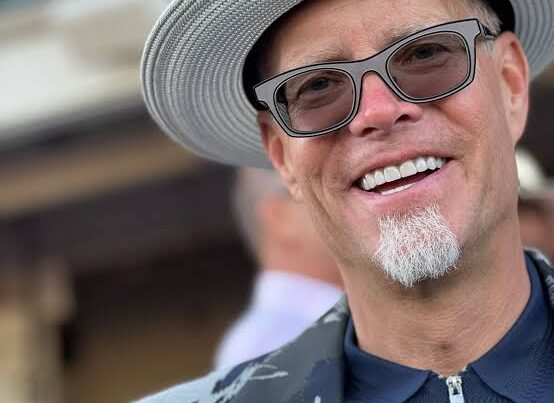Podcast: Play in new window | Download
Subscribe: RSS
What are the 3 keys to building great leaders?

Alain Hunkins
Alain Hunkins is a sought-after leadership speaker, consultant, trainer, and coach. His recent book, Cracking The Leadership Code: Three Secrets to Building Strong Leaders (Wiley, March 2020) launched as the #1 Bestselling New Release in Business Communication on Amazon and has been endorsed as “one of the most practical books on the planet when it comes to leadership and how to make a difference.”
Over his twenty-year career, Alain has led over 2,000 groups in 25 countries. His clients include Wal-Mart, Pfizer, Citigroup, General Electric, State Farm Insurance, IBM, General Motors and Microsoft. Alain has designed and facilitated seminars on numerous leadership topics, including teambuilding, conflict management, communication, peak performance, innovation, engagement, and change. Alain also serves on the faculty of Duke Corporate Education.
His articles have been featured in Fast Company, Forbes, Inc., Chief Executive, Chief Learning Officer and Business Insider.
What We Discuss With Alain Hunkins in This Episode
- Where we first learn about leadership
- What is the leadership code
- The top priorities of a great leader
- How to be an empathetic leader in the midst of uncertainty
- The importance of emotional health more than emotional intelligence
- What leaders need to know about the impact of the pandemic on people
Transcript Highlights
What Fuels Alain’s Passion for Leadership
Alain Hunkins has always been fascinated by people. His curiosity to know why people do what they do originated from his childhood. Alain had a unique experience while growing up. He was born in New York City and raised by his mother and grandmother. But that’s not the unique part; what differentiated his upbringing from the rest of his peers in the 1970s was the fact that both his mom and grandmother were holocaust survivors. Their experience of survival and losing the rest of their family completely shook them and changed their world view.
Alain found a keen interest in leadership as he realized that our families are the first organization we join. He wanted to know how certain leaders used their abilities to impact other people’s experience of life. He went on to study psychology as well as theatre, through which he studied people through their portrayal of dramatic characters. Alain was soon introduced to the world of education and corporate leadership trainings and finally ended up to where he is now, sharing his learnings through his book.
What is the Leadership Code
While studying and observing the leadership code, Alain realized that most people were promoted into leadership positions because they were seen as a high performer and could get the job done. But there was a huge gap between being a high performer and facilitating high performance in others. High performers in leadership roles often have an overall drive to get things done, which leads to valuing efficiency over effectiveness.
Data shows that 85% people are not engaged at work. 51% employees don’t trust their employers and only 12% strongly agree that their leaders have the right mindset to lead well.
Alain started seeing patterns and behaviors; what good leaders did well and what lousy leaders did poorly. His notes became blog posts which later turned into chapters.
He found that there are 3 main themes which are now the subtitles of his ‘Cracking The Leadership Code’ book. These 3 keys all effective leaders need to do well – Connection, Communication and Collaboration.
Alain shares that as a leader, working hard alone won’t help; leaders need a facilitative mindset. And if leaders want to facilitate high performance in others, they need to know how to achieve performance goals using skills which are based on the right beliefs.
The Journey of Transformation as a Leader
Transformation is the biggest work of change. One cannot change what they aren’t first aware of. Many leaders are blind to their own blindness. If a Leader feels “I’m good enough and I don’t have to change anything”, then they’re done. If a leader feels they can be better, then it takes courage to take an honest look in the mirror, ask for feedback, receive the feedback, and take steps to move forward. A person who is a high performer and takes up a leadership role has a doer mindset. Having a doer mindset means you feel the need to fix something, and being a leader doesn’t mean being a fixer.
Being a leader means being focused on people not just being tactical and task oriented. Leaders have to learn how to treat people like people. The key to hitting the numbers is to not focus on the numbers but focus on people, because it is the people who hit the numbers. The journey of transformation as a leader requires a thorough self assessment, to be able to take honest feedback and to be willing to change and be coachable.
The Growing Need for Powerful Leaders During the Pandemic
COVID has caused the leadership principles of Connection, Communication and Collaboration to become more important and relevant. The pandemic has revealed the weak spots in the leadership processes in organizations. Every organization assumed the structural process was important, until everything had to be changed.
A big part of being a transformational leader is being conscious of how you do what you do. People are good at a lot of things but they can’t read minds. As a leader, it’s important to connect first.
Balancing Empathy and Focused performance as a Leader
The pandemic qualified to be a traumatic experience. And trauma causes different people to respond differently. A leader with empathy means normalizing how people feel and what they’re dealing with. On a human level, empathy is hard wired in us, but that’s only reserved for our loved ones.
There are two roadblocks stopping leaders and organizations from being more empathetic – lack of patience and lack of skill to deal with feelings in the workplace. Patience is the ability to pause and reflect. It’s about having and practicing the common sense of checking up on the team.
Gen Y and Gen Z are much more open to feelings than older generations. Feelings are not something that one can suppress even if it’s at their workplace. Having empathy as a leader means closing the gap and knowing how often to check-in on people; it’s about caring and humanizing the workplace.
Managing Emotions as a Leader
Alain Hunkins asks every leader what they are doing for their own emotional health. He believes that all professional development starts with personal development. He urges all leaders to find a place to discharge; preferably one that has no real world consequences. Alain says that every leader should have a coach, mentor, friend or therapist; basically a support system. If a leader truly wants to become transformational, they have to clean their own house first. To be an empathetic human, one needs to have space for other people to support them.
Can Everyone be a Leader?
Everyone who is willing to do the work can be a leader. Whenever you’re trying to influence anyone, even yourself to get something done, that’s leadership. Alain shares that leadership goes beyond profession, position, job, title or organization. The world calls for you to lead somewhere every day. Yes everyone can be a leader. Some people disempower themselves and thus he feels that more and more people should get in touch with their own power and potential and make the world a better place.
Being more Credible as a Leader – How to be the Change
Alain says, “If people don’t believe in you as the messenger, they’re not going to believe in your message”. One of the most important things a leader can do is show up on time. Show up on time for the team and not just for yourself. A leader needs to constantly check with themselves if what they’re doing is in alignment with who they are and what they’re here to do. Alain inspires leaders to find their WHY to be able to create the impact they want to create.
Being a Thought Leader – Loving and Living your work
Successful leaders do what they do because they want to be the best version of themselves, not in comparison to somebody else. As a result, people want to learn from them. Alain shares that the key to true leadership is beyond mission, vision and purpose; it is to fall in love with the work. A transformational leader is not just motivated by external rewards, but the work itself. One cannot control the outcome, but every leader should fall in love with the process.
Episode Resources 
- Book: Cracking The Leadership Code: Three Secrets to Building Strong Leaders
- TED Talk: The Basic Truth Most Leaders Neglect
Connect With Alain Hunkins
- Website: www.alainhunkins.com
- LinkedIn: www.linkedin.com/in/alainhunkins
Did You Enjoy The Podcast?
If you enjoyed this episode please let us know! 5-star reviews for the Leaders Of Transformation podcast on Apple Podcasts, Spotify, Pandora or Stitcher are greatly appreciated. This helps us reach more purpose-driven entrepreneurs seeking to make a positive impact in the world. Thank you. Together, we make a difference!
Additional Episodes You May Like
- 359: Dave Willner: Maintaining an Employee First Culture in Difficult Times
- 347: Scott Miller: Management Mess to Leadership Success!
- 345: Melissa Lamson: Managing Well in a Complex Business Environment
- 327: Sue Salvemini: Leading From Your Kitchen Table
- 321: Dr. Jeffrey Spahn: The Evolution of Leadership in the Midst Of Crisis
- 297: Craig Wheldon: Life and Leadership Lessons From A 2-Star General
- 118: Tiana Sanchez: Building Better Managers & Leaders In Today’s Marketplace
- 076: Blair Singer: Building A Championship Team










